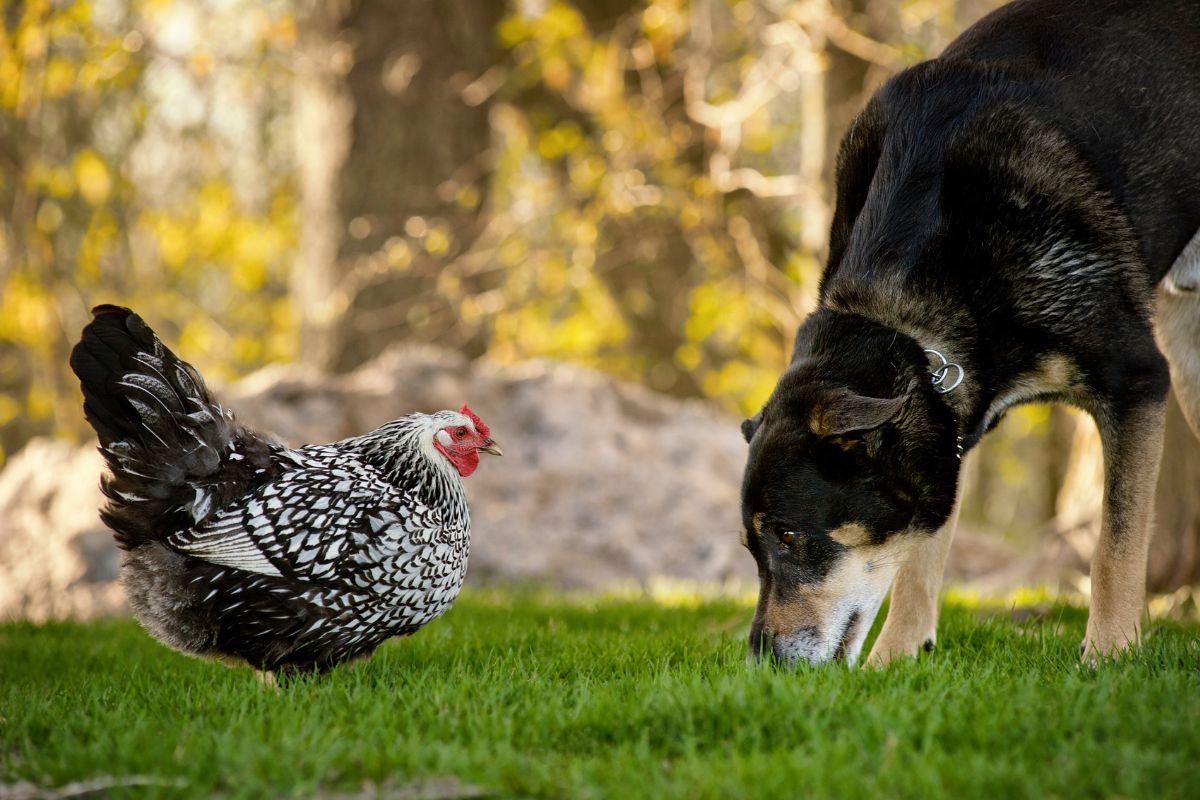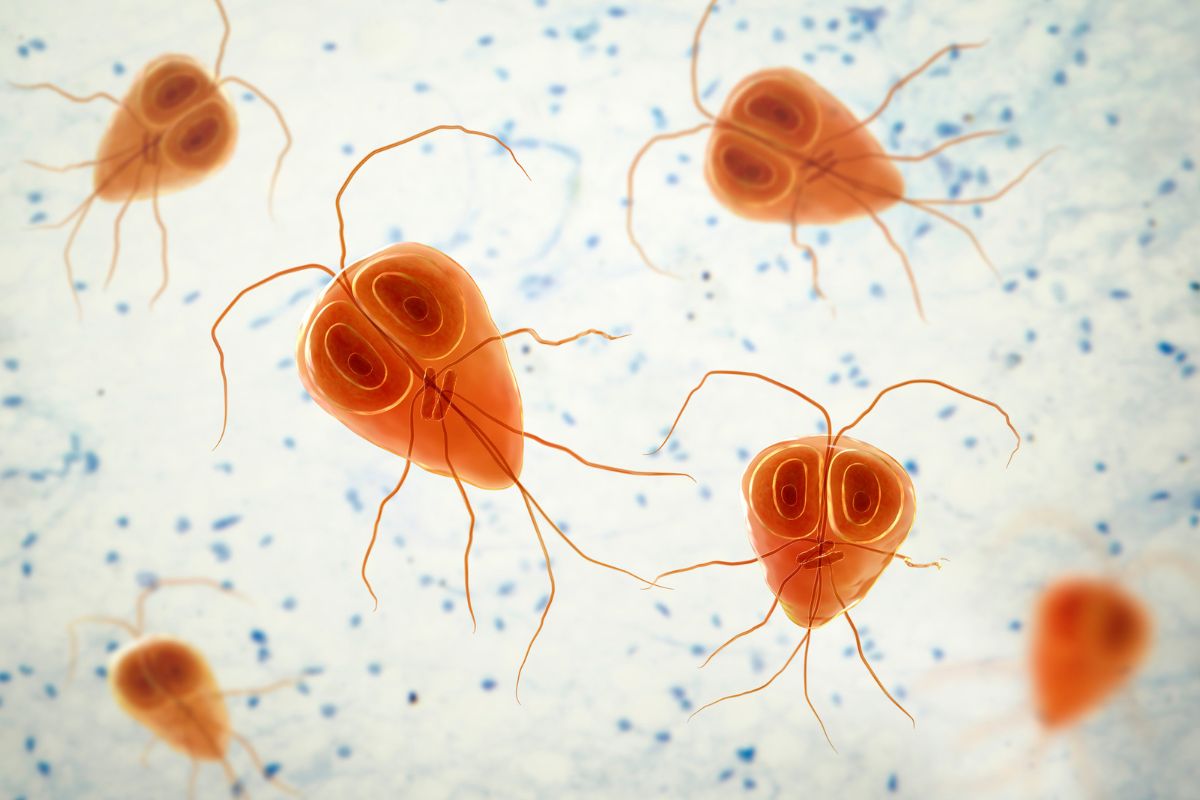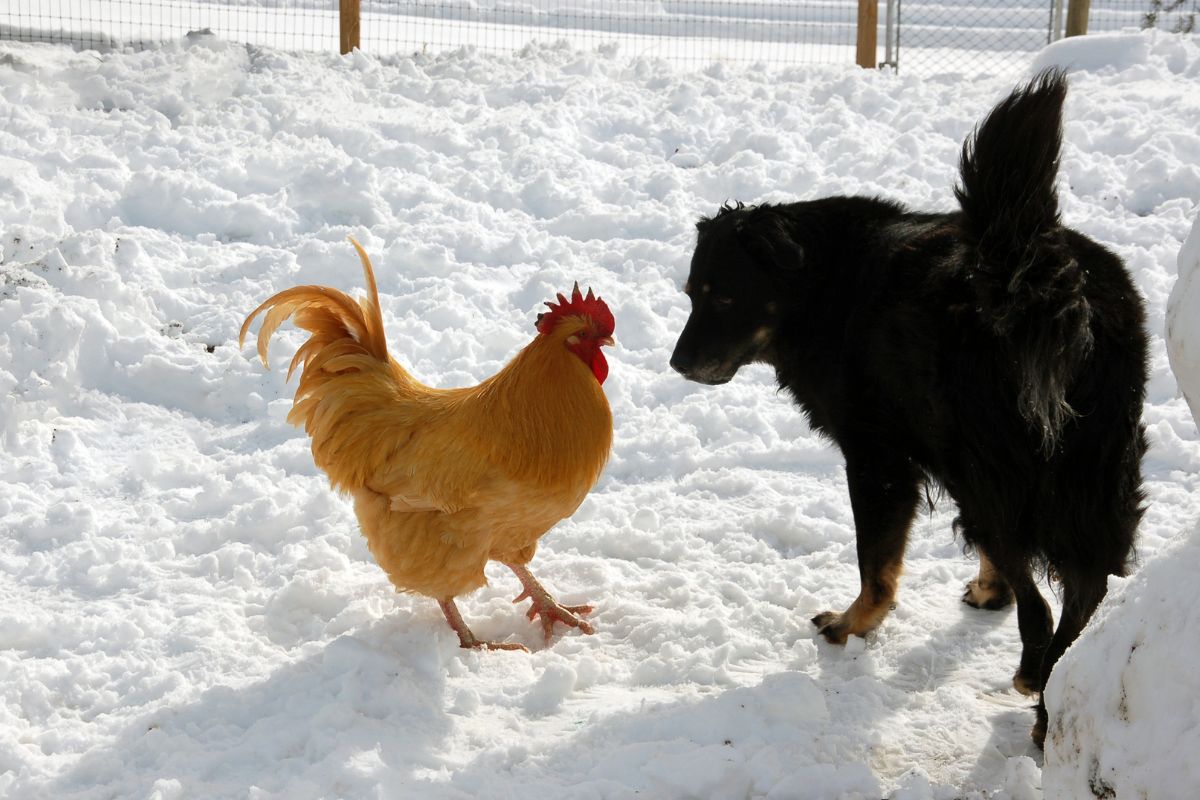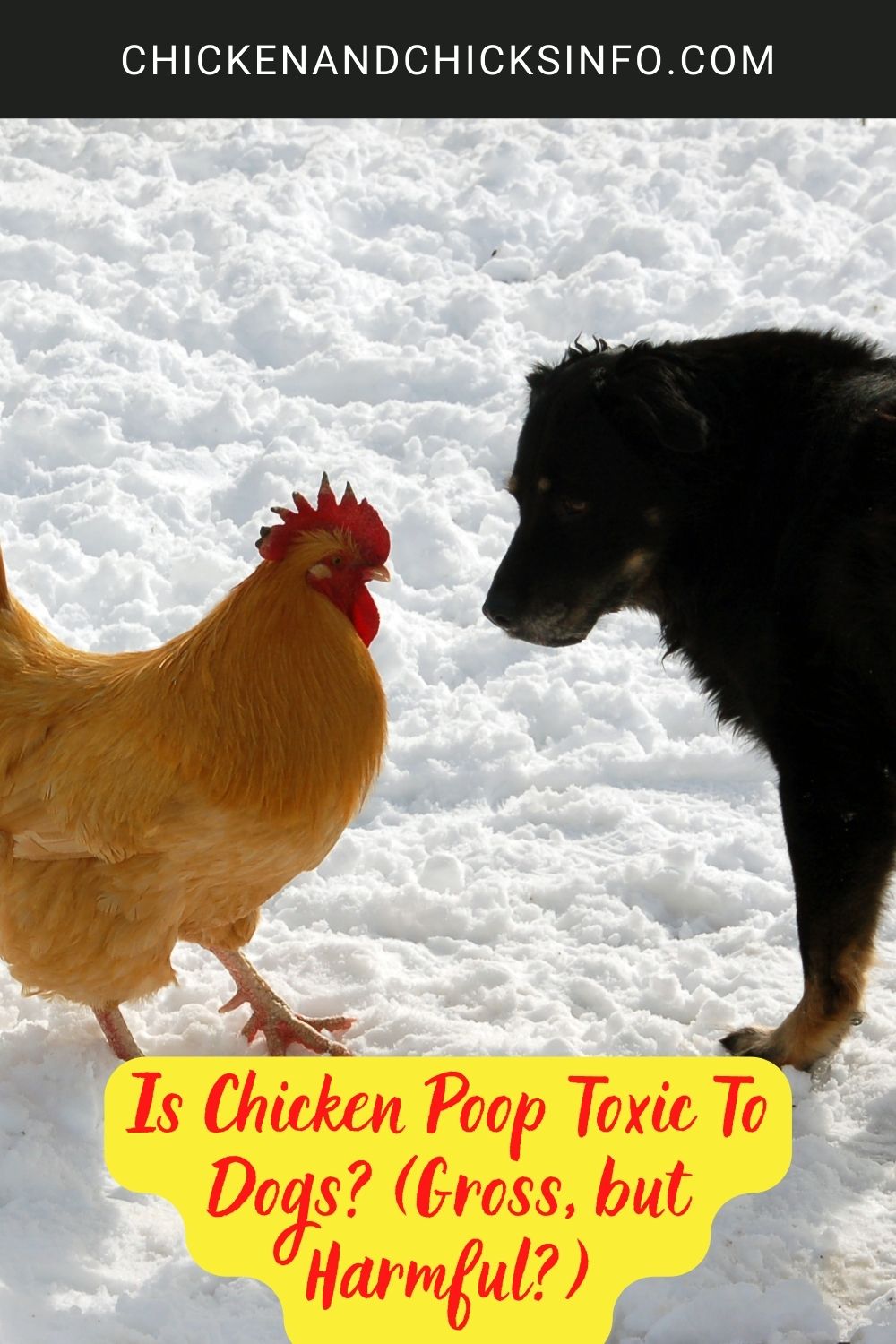
Chicken poop can be toxic to dogs, yes. Typically, only if your flock is harboring parasites or diseases that can be passed through their poop though. Still, there’s no question it’s gross, so you should take steps to stop your dog from eating your chickens’ poop.
Jump to:
Can Dogs Catch Anything From Chickens?
There is always a risk, albeit a small one, that dogs and other pets will catch something from chickens. In particular, from chicken poop, as this is how a lot of bacteria can be passed.
It’s important to note that it’s not the poop itself that’s toxic. Obviously, it’s a disgusting sight seeing a dog eating poop, but it’s parasites and bacteria in poop that’s the concern.
If you worm your flock regularly and they’re in good health, the risk is minimal. However, you should be aware of these possible risks:
Salmonella
Salmonella is one of the most common bacterial diseases birds carry in their guts that they can pass to us, dogs, and other animals with some nasty symptoms.
Chickens will often not show any symptoms, and this bacteria can spread via feces and in their general environment.
I cover more about the symptoms below, if you're interested. It’s often not much worse than diarrhea or vomiting, but in some cases, it can be pretty serious.
Giardia

Giardiasis is a diarrheal disease caused by Giardia, a microscopic parasite that can be easily passed through animal feces.
It’s not that common in chickens, but I do hear of infections from time to time. The main symptom is brown watery diarrhea, dehydration, and weight loss. Not pleasant!
Worms
Anyone raising backyard chickens will know how important it is to deworm their flock and keep an eye out for the signs of worms.
Worms can cause a range of painful and unpleasant symptoms, from nausea, vomiting, abdominal pain, and more. The most common types of worms poultry can pass to dogs via their poop are:
Roundworms - These have around a 28-day life cycle. They live inside the intestines, and their eggs pass through the chicken’s feces.
Tapeworms - These also live inside the intestines and their eggs pass through a chicken’s waste.
Hookworms - Like most worms, these are intestinal parasites. They attach themselves to the lining of the intestinal wall and feed on blood.
Related - How to use Safeguard to keep your chickens free of worms.
How Do You Know If Your Chickens Have Worms?
Different worms cause different symptoms. But generally speaking, if your chickens are displaying any of the following symptoms, I’d consider worming them:
Loss of appetite or weight
- Pale or floppy combs
- Lethargic behavior
- Not laying regular eggs
- And any obvious signs that your chickens are not well.
It’s usually not that hard to tell when chickens are unwell. They lose that “pep” in their step, aren’t making as much noise, are clearly not as active, etc.
Can Dogs Get Salmonella From Chicken Poop?

Yes, dogs can get salmonella from chicken poop - and anywhere else this bacteria is found around the yard.
If your chickens are infected, and there may be no obvious signs that they are, then they can easily pass it across to your dog.
I’m not trying to scare you, salmonella is not common in backyard chickens. At least not in my experience.
It’s an unpleasant illness though, so if there are any steps you can take to stop your dog eating chicken poop, this should be reason enough.
That is if the fact that knowing your dog is actually eating chicken poop isn’t already enough of a reason! I know it is for me, eww.
How Do You Know If Your Dog Has Salmonella?
The worrying thing is that according to the FDA, dogs, cats, and other household pets will not always show obvious signs that they have salmonella.
They can still have the bacteria and shed it in their stool and pass it to us by licking us though.
Another reason to dissuade your dog from eating chicken poop!
If they do show symptoms, which is more common in puppies, the most obvious signs of salmonellosis are:
- Diarrhea (look for blood in their poop too)
- Vomiting
- Loss of appetite
- Fever
- Lethargic behavior
Related - Here are some tips to help keep dogs and chickens together.
In Summary
Chickens poop a lot, and there are some pretty nasty parasites and bacteria that can be present in chicken poop.
If you have dogs roaming around with your chickens, the best advice to minimize infection is:
- Train your dogs not to eat it.
- Clean up as often as you can, and
- Keep your flock regularly wormed and treated for any signs of illness asap.
The risk of illness being passed to your dog is small, so try not to worry or stress over it too much. Dogs will be dogs, and sometimes their penchant for eating things they shouldn’t will land them in trouble!
Resources
Facts about salmonella - FDA.gov
Parasites - Giardia - Centers for Disease Control and Prevention





